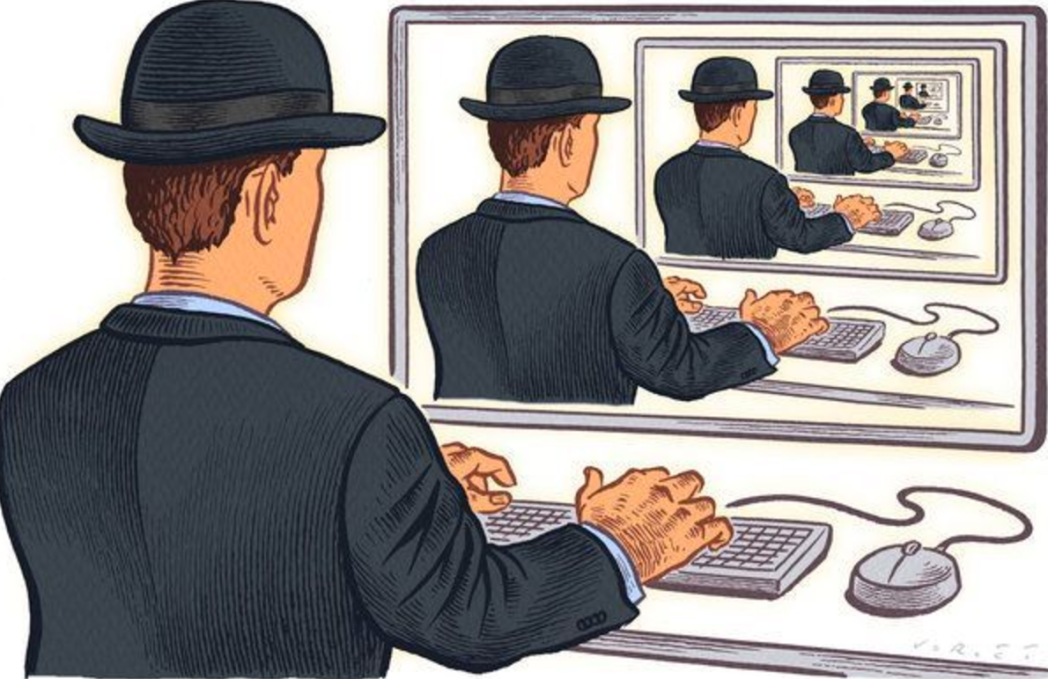There’s no doubt that the presidential election shocked many people. They just didn’t see it coming. I cannot claim to be superior in this sense. I thought that Trump might win but if I had to bet my own money I would have put it on Clinton. However, there were many people out there who genuinely thought that Trump was going to get completely wiped by Clinton come judgment day. Famous examples hosted Ann Coulter being laughed at by the audience and panel of a talk show for predicting his victory [link]. The one that stuck in my head, however, was Obama’s smug tweet retort saying “at least he will go down as a president” then dropping his phone the receive a confident round of claps and cheers [link].
This tickled me and I didn’t hold back from sharing it on Facebook. Clips like this are always an interesting look into the past. They almost look like a different era as they were so sure of something the viewer knows will turn on its head. However, this has been rationalized by a number of people. “It was unforeseen, he couldn’t have known, we didn’t see it coming”. Although these statements are true they do not rationalize the situation. We all get stuff wrong. If I could predict with 100% accuracy I’d be cashing in at the bookies every week. However, to get a prediction so wrong should prompt self-reflection at the very least.

Let’s look at the problem. It’s an issue of data collection and analysis. However, we’re not trying to predict the outcome of quantum entanglement where the act of measuring alters the state. When Einstein’s entanglement predictions were shown to be wrong you’d have to be fairly unreasonable to suggest that he needs to reflection on his ability as a physicist. The nature of this data is very different. If you ask people who they’re going to vote for and get them to talk about their political alliance if they are answering honestly then they will tell you. They will not if you don’t listen, threaten them with violence, demonize them, or simply choose not to listen to them.
When the results of the election did come out my facebook was littered with statements concluding that the world had gone crazy. But again, this is just another simple (and frankly lazy/arrogant) rationalization. When an event on the scale of the US election or Brexit happens you have to consider your data feeds. Despite morality and ethics did you have an accurate picture of reality? If you thought that Clinton was going to crush Trump then your data collection results in serious error. With this error, it’s ……. confident to assert moral and ethical arguments as they are likely to be on a shaky data foundation. Here’s some of the steps I take to prevent data error in data collection:
Don’t defriend/ignore people with different opinions Even though I find some of them annoying even annoying people can know something you don’t, or see something you can’t. Defriending people who you don’t agree with is literally introducing selection bias into your sample.
Remember people are not one-dimensional Dehumanising someone is an easy way to avoid questioning yourself but does increase data error. I notice this with people I’ve seen. People who I’ve had a face to face interaction with within the last two years are more willing to listen and engage and are less likely to personally insult or speculate even if they have a difference in opinion. This is because they see you as a human. Even though they don’t agree with you on a topic they have had a conversation with you, shared a joke/laugh, and spoken to you about other topics. They understand that this one opinion doesn’t define you as a person. People who I haven’t seen face to face for more than four years, however, are way more likely to insult, make assumptions on your character and flat out be vile. This is because they are seeing the opinion, not the person behind it. The woman who I’ve pulled 12-hour shifts with, in all sorts of difficult situations in the emergency department for years, laugh at the fact that people who barely knew me 10 years ago call me a sexist for not accepting that correlation equals causation, and that if there’s a difference in the stats that it must be sexism.
Subscribe (pay) for a proper newspaper Websites like Buzzfeed and Huffington post are just trash. They rely on clickbait and viral marketing campaigns. In order to achieve this, they will twist the truth and make it simplistic and bite-sized in order to get the clicks on their ads. Now I know that mainstream traditional papers are not angels and they have political affiliations but they are no way near as bad as sites like Buzzfeed. For me, I pay for the Times. It has the most diverse editorial board and currently flips between backing Labour and Conservative in elections. As a result, the staff are a good mix of right and left. The Sunday Times also has different editorial board. Again it doesn’t provide the perfect divine truth but in my opinion, it’s the least likely to push you into a warped sense of reality. A friend of mine subscribes to slow news [link]. This is where they wait for a couple of months for all the facts to come to the surface before writing a detailed report on it. I’m sure there are others but if your news source is sporting headlines like: “The way she did this was amazing!” or uses emotive words like schooled, slammed etc regularly in their headlines chances are it’s clickbait trash.

